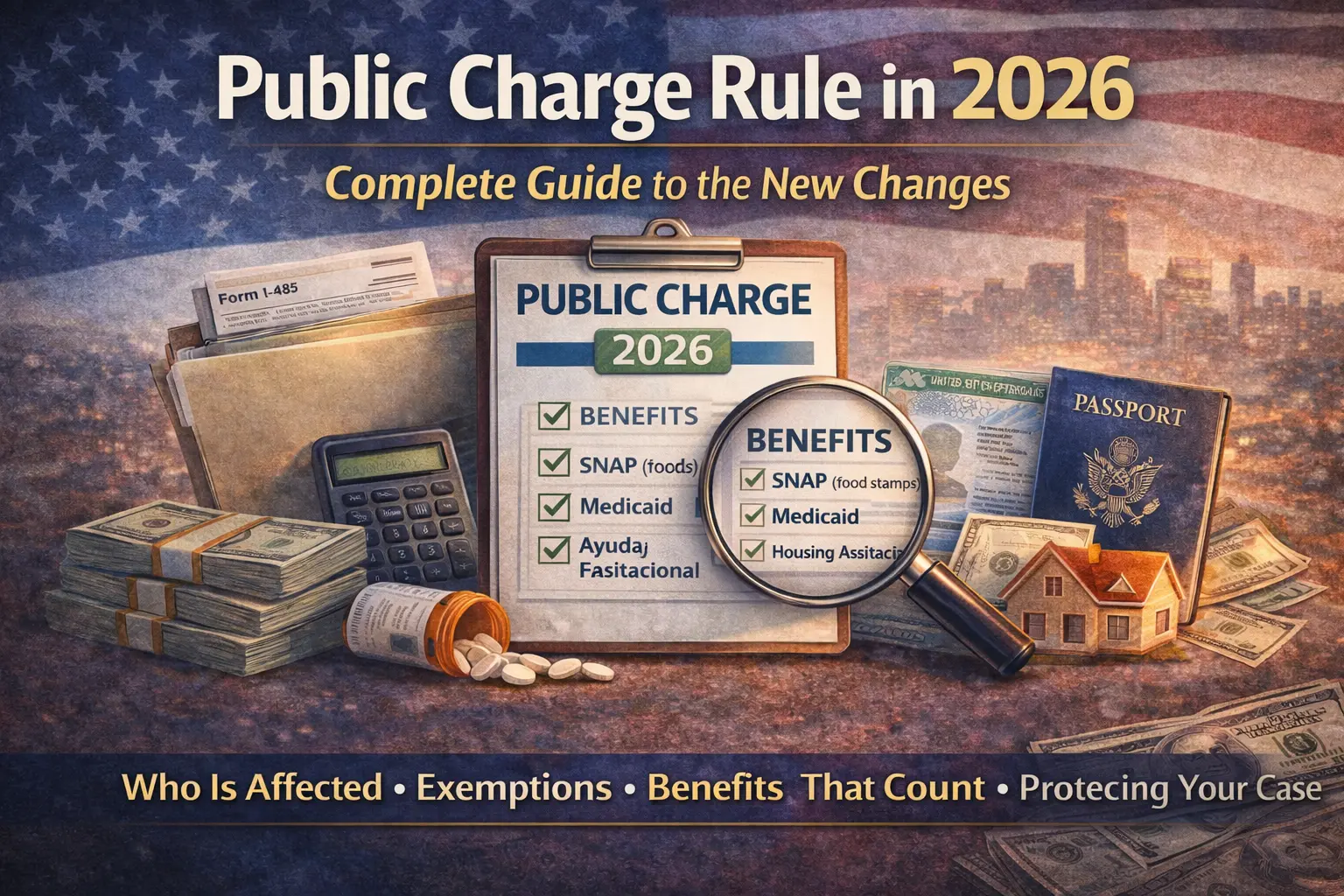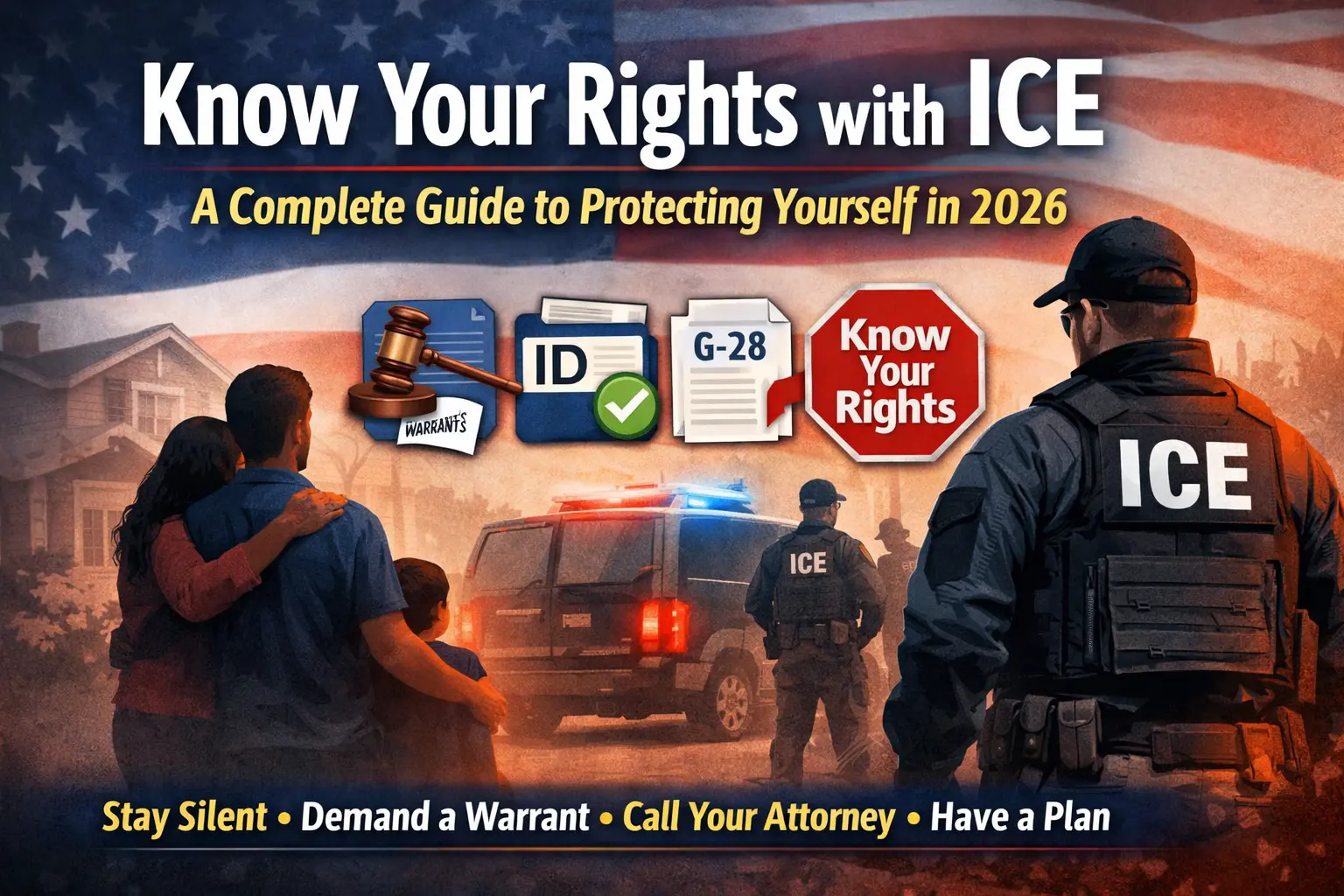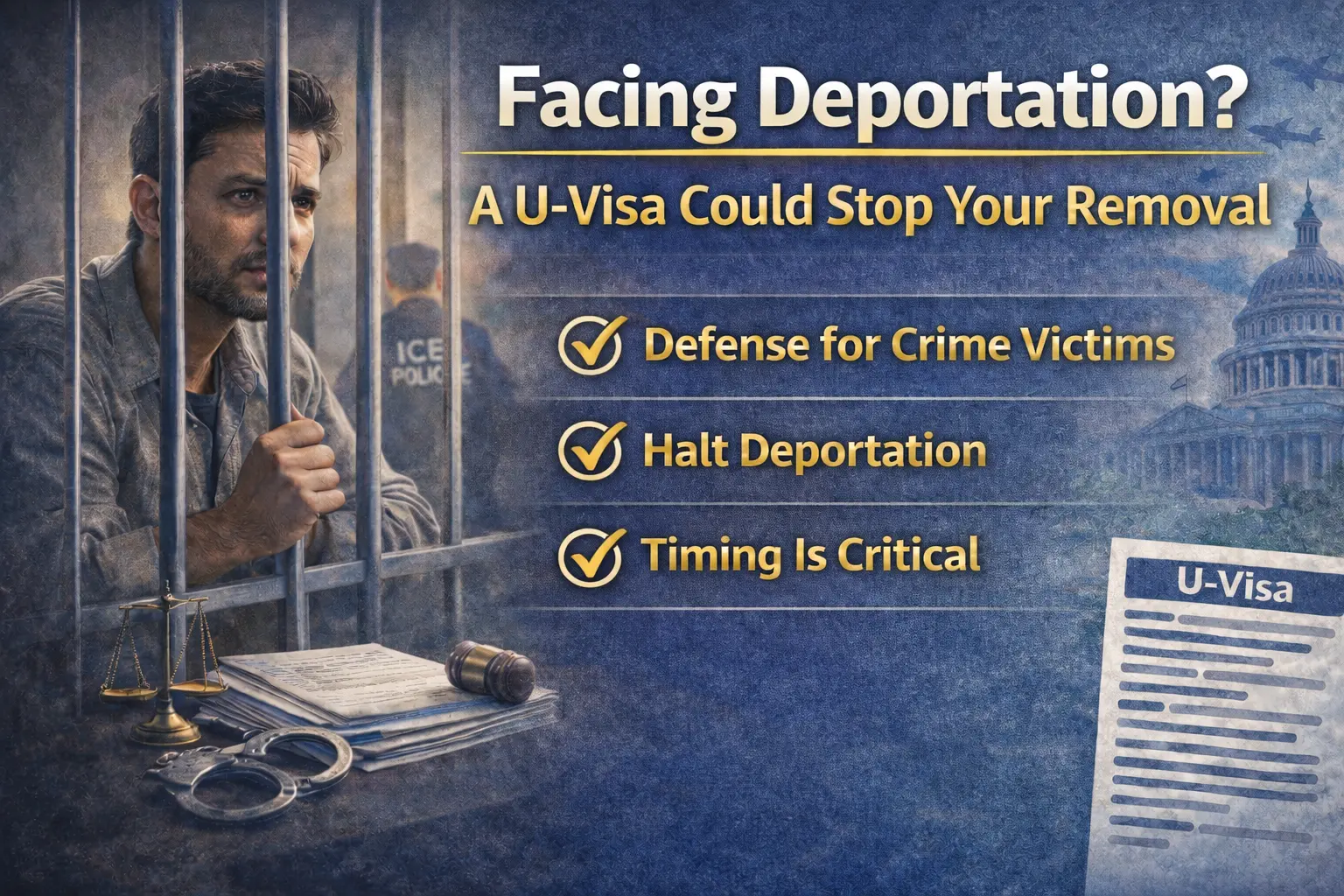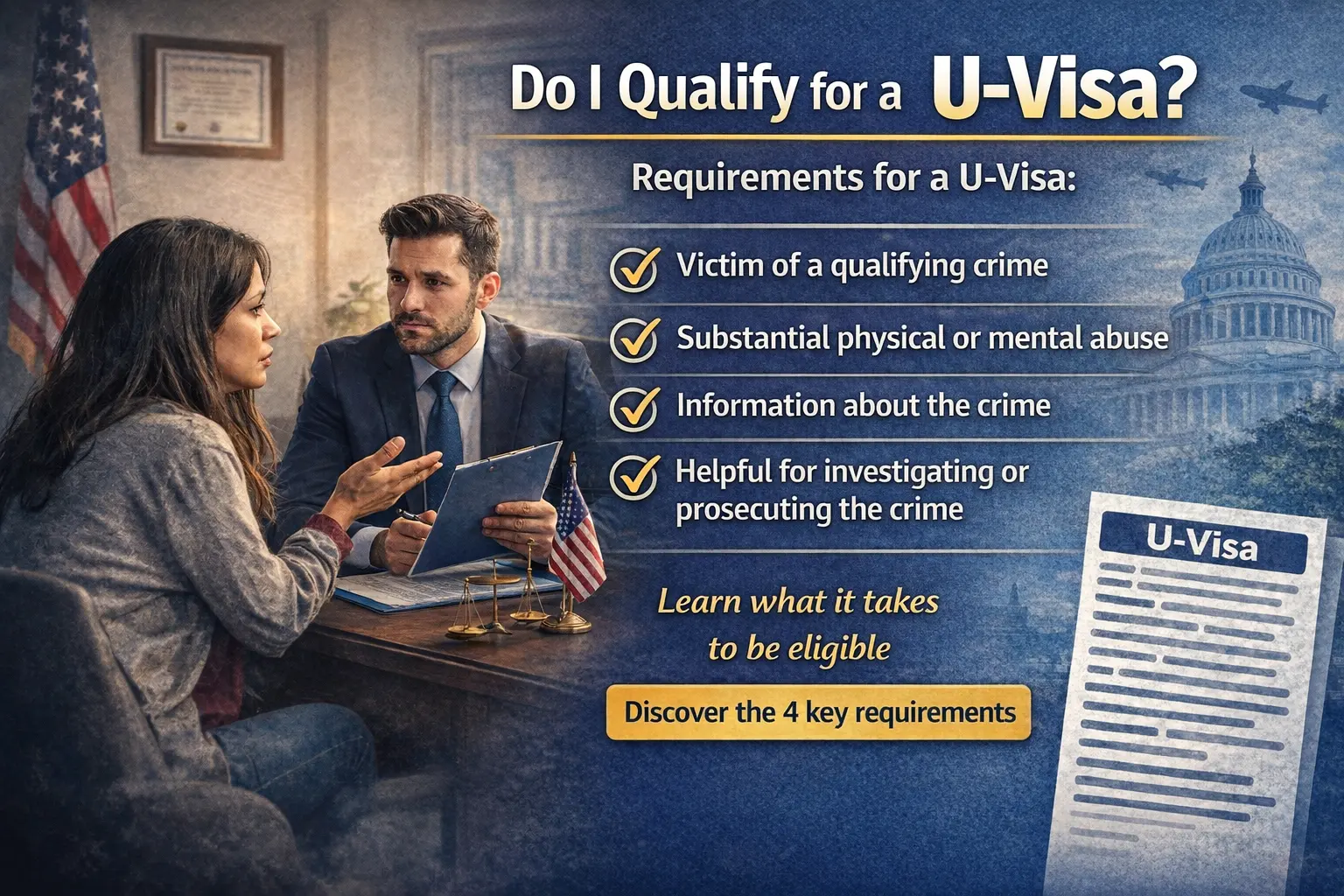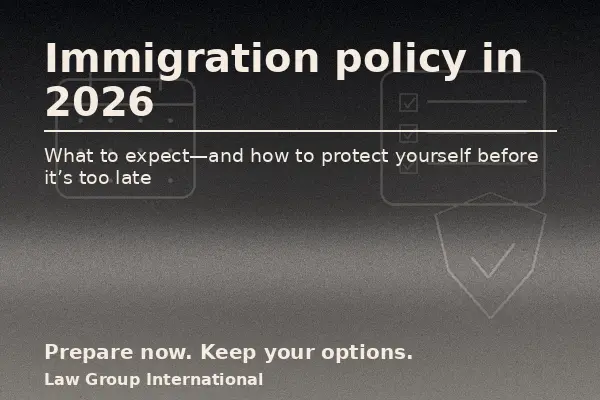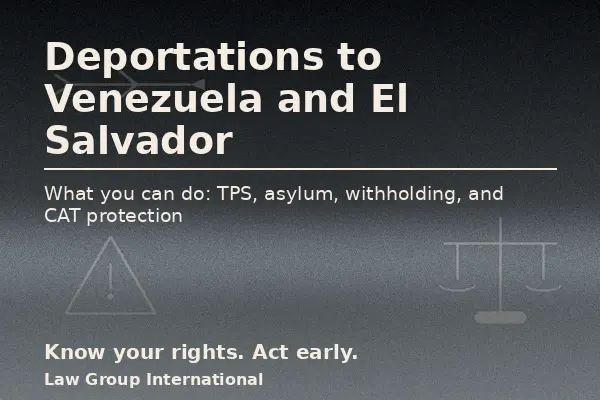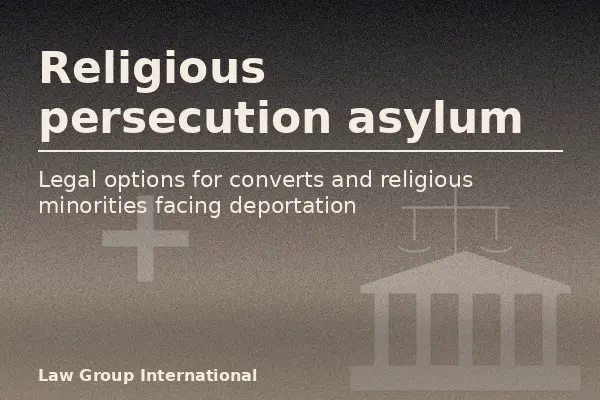Frequently Asked Questions about Deportation and How a Lawyer Can Help
Facing deportation is one of the most stressful and confusing situations an immigrant or their loved ones can go through. Whether you’ve just received a Notice to Appear or you’re already in removal proceedings, it’s normal to feel overwhelmed. The good news? You’re not alone—and you have rights.
This blog answers some of the most frequently asked questions about the deportation process and how an immigration attorney can help. While every case is unique, this guide is designed to help you understand what’s happening and what steps to take to protect yourself and your family.
What Does “Facing Deportation” Mean?
Definition of Deportation and When It Applies
Deportation (also called “removal”) is the legal process the U.S. government uses to expel non-citizens who are believed to have violated immigration laws. This can happen to undocumented immigrants, visa holders, and even green card holders under certain circumstances.
The Deportation Process in Brief
The process typically begins with a Notice to Appear (NTA), followed by immigration court hearings, and—if no relief is granted—may result in a final removal order. However, there are often legal defenses and appeals available along the way.
Who Can Be Deported from the U.S.?
Undocumented Individuals
Those who entered the U.S. without inspection or overstayed their visa can be subject to removal.
Visa Holders and Overstays
Even temporary visa holders (like students or workers) can face deportation if they violate the terms of their visa.
Green Card Holders
Lawful permanent residents may be placed in removal proceedings if they commit certain crimes or violate specific immigration rules.
What Are Common Reasons for Deportation?
- Overstaying a visa
- Working without authorization
- Criminal convictions (DUIs, theft, drug charges)
- Using fraudulent documents
- Violating the terms of immigration status
What Happens During Deportation Proceedings?
Notice to Appear
The NTA is a formal document that starts the process. It lists the reasons the government believes you should be removed from the U.S.
Immigration Court Hearings
There are typically two types:
- Master Calendar Hearing: The first court appearance, where your case is scheduled and charges are reviewed.
- Individual Hearing: Where you present your defense and evidence to the judge.
The Role of the Judge and DHS Attorney
The judge decides your case, while a government attorney represents the Department of Homeland Security and argues for your removal.
What Are My Rights if I’m Facing Deportation?
- The right to a fair hearing
- The right to present evidence and call witnesses
- The right to an interpreter
- The right to remain silent
- The right to be represented by an attorney (but not at government expense)
Can I Stop or Appeal a Deportation?
Relief Options
- Cancellation of Removal: For long-term residents or non-residents who meet strict criteria.
- Asylum or Withholding of Removal: If you fear persecution in your home country.
- Waivers: For certain past immigration or criminal violations.
- Adjustment of Status: If you become eligible for a green card through a family member during proceedings.
- Voluntary Departure: If no relief is available, this may be a better alternative than a deportation order.
Appeals Process
You can appeal a removal order to the Board of Immigration Appeals (BIA) within 30 days. In some cases, further appeals to federal courts are also possible.
Will I Be Detained? Can I Get Bond?
Many individuals are detained by ICE when facing deportation. Depending on your case:
- You may request a bond hearing to be released.
- Bond amounts vary and are based on flight risk and community safety.
- If you’re not eligible for bond, alternatives like supervision programs or electronic monitoring might apply.
Do I Need a Lawyer for Deportation Proceedings?
You’re not legally required to have a lawyer, but immigration law is complicated—and the stakes are high. Studies show that people with legal representation are far more likely to succeed in their cases. A deportation defense attorney can:
- Prepare and file your relief applications
- Argue your case in court
- Help secure bond
- Ensure no deadlines are missed
- Offer emotional support throughout the process
Law Group International has helped hundreds of clients navigate deportation proceedings with compassion, precision, and strength.
How Can a Lawyer Help Me Fight Deportation?
- Building a strong defense: collecting evidence, affidavits, and expert testimony.
- Representation in court: advocating for you during hearings and negotiations.
- Handling complex paperwork: ensuring every form is properly submitted.
- Appeals and motions: filing timely appeals or motions to reopen your case.
You Don’t Have to Face It Alone
Deportation is daunting—but it’s not the end. You have options, rights, and the ability to fight back. The team at Law Group International is here to help you during a deportation defense process.
If you or someone you love is facing deportation, contact us today for a confidential consultation. We’re here to stand by your side and fight for your future in the United States.
Explore More Immigration Topics
Public Charge Rule in 2026
February 19, 2026
Know Your Rights with ICE: A Complete Guide
February 17, 2026
VAWA Immigration: Protection for Victims of Domestic Violence
January 28, 2026
U-Visa and Deportation: How This Visa Can Save Your Case
January 19, 2026
U-Visa requirements 2026: Complete eligibility guide
January 13, 2026
Immigration Policy in 2026
January 1, 2026
Deportations to Venezuela and El Salvador
December 31, 2025
Religious Persecution Asylum
December 30, 2025
Northern Virginia Immigration Court
December 20, 2025

